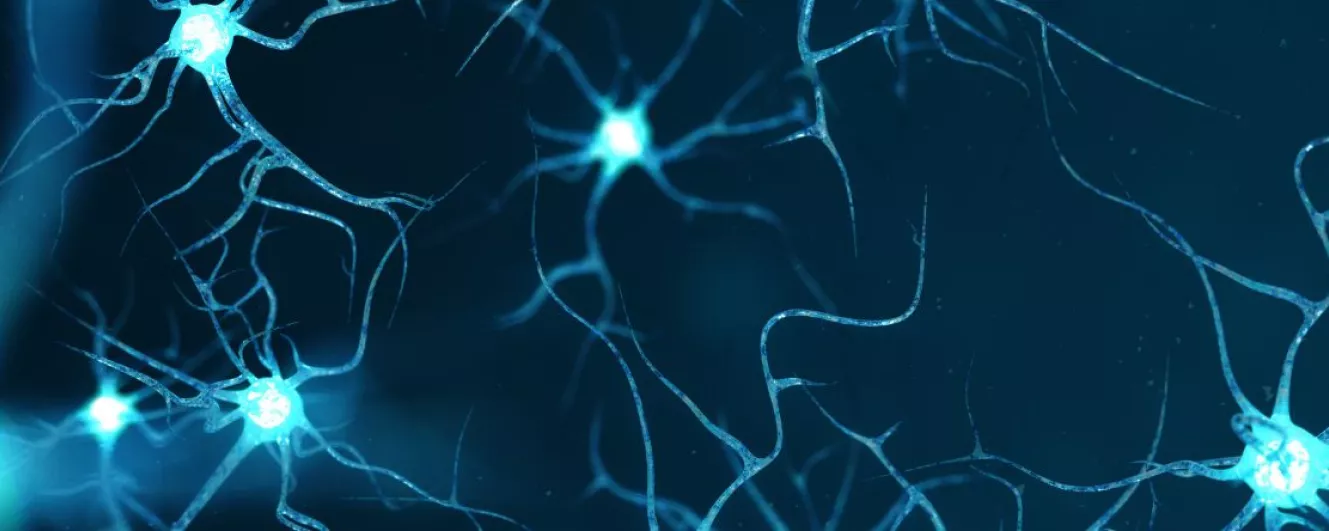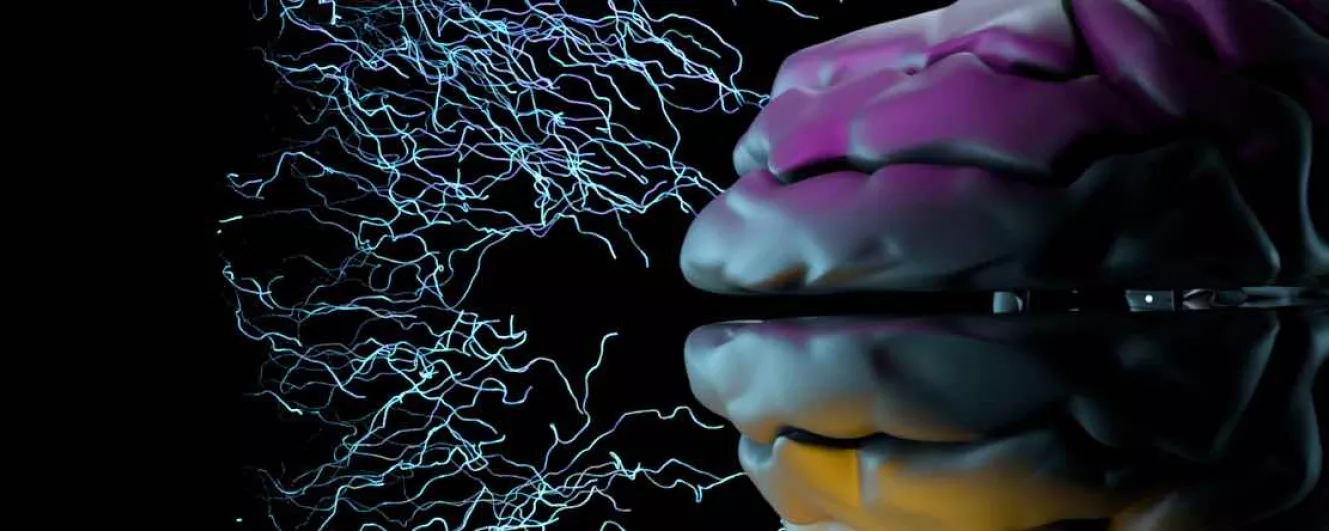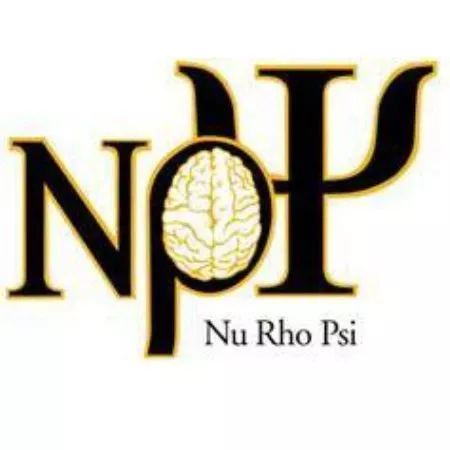
Interdisciplinary Program
Neuroscience
Study Neuroscience at Saint Francis University
Neuroscience programs at SFU are a great match for students who enjoy making connections across biological and psychological sciences and are curious about the structure and function of our brain and nervous system, including sensory, neuromuscular and cognitive systems.
Why choose Saint Francis for Neuroscience?
- SFU graduates are prepared to earn spots in neuroscience graduate programs nationwide.
- The interdisciplinary approach builds your expertise from multiple fields within the scope of neuroscience.
- Advising and mentoring are handled by faculty who understand your career path.
- SFU boasts a vibrant chapter of Nu Rho Psi, the National Honor Society in Neuroscience.
- Undergraduate research opportunities with respected biology and psychology faculty as early as your freshman year help you stand out among your peers in the professional and educational market.
Discover your Path
There are two paths that you can follow to pursue Neuroscience at SFU:
- Double-majoring in Biology and Psychology with neuroscience specializations can offer you broader career opportunities.
- A minor in neuroscience can be paired with any major.
Offered on Campus

What is Neuroscience?
By studying Neuroscience, you will be provided with the fundamental knowledge needed to understand the evolution and development of the nervous system, its function in health and disease, processes of rehabilitation, and underlying biobehavioral research. You will thus become well-versed in a variety of disciplines, ranging from molecular and cellular biology to psychopharmacology, biochemistry, neuroanatomy, and behavioral neuroscience.
- Health care professionals learn the neurological basis of sensation, movement, and disease.
- Future psychologists learn the biological underpinnings of the nervous system.
- Biologists and chemists learn how the actions of neurons manifest in behavior and cognition.
The Neuroscience Concentration
Double Major with Intent
The Neuroscience Concentration embedded within the Biology, B.S. and Psychological Sciences, B.S. degree programs is designed to provide you with the breadth of knowledge needed to advance your academic and professional career.
By pursuing the Neuroscience Concentration, you can:
- major in both Biology and Psychological Sciences.
- conduct undergraduate research across the Psychology and Biology departments.
- explore membership in the Nu Rho Psi neuroscience honors society, Kappa of Pennsylvania chapter.
- prepare to work as a research laboratory technician after graduation.
- further your studies in a neuroscience graduate program at institutions around the nation.
Program Snapshot
Dual Degrees Awarded:
Psychological Sciences, B.S. Neuroscience (Course Catalog)
Biology B.S., Neuroscience (Course Catalog)
Biology Learning Outcomes
- Goal 1 - Scientific Method: Employ the scientific method, including the use of discipline-specific techniques, to discover and validate biological knowledge.
- Goal 2 - Scientific Literacy: Demonstrate scientific literacy through reading, writing, presenting, and discussing research.
- Goal 3 - Biochemistry & Cellular Biology: Demonstrate knowledge of how atoms and molecules interact to permit the function of living systems, and how cells sense, control, and respond to stimuli in their environments.
- Goal 4 - Molecular Genetics: Demonstrate knowledge of molecular genetics and how this leads to the expression and inheritance of traits.
- Goal 5 - Organismal Biology: Explain how organisms reproduce and develop, how their anatomical structure permits function, how they maintain internal conditions, and how they sense and respond to external stimuli, across the full range of biological diversity.
- Goal 6 - Ecology & Evolution: Describe how evolution by natural selection explains the unity and diversity of life on earth, and articulate how organisms interact at the population, community, and ecosystem levels.
Psychological Sciences Learning Outcomes
- Goal 1 - Knowledge Base in Psychology: Students should demonstrate fundamental knowledge and comprehension of the major concepts, theoretical perspectives, historical trends, and empirical findings to discuss how psychological principles apply to behavioral problems.
- Goal 2 - Scientific Inquiry & Critical Thinking: The skills in this domain involve the development of scientific reasoning and problem solving, including research methods.
- Goal 3 - Ethical & Social Responsibility in a Diverse World: Skills in this domain involve the development of ethically and socially responsible behaviors for professional and personal settings in a landscape that involves increasing diversity.
- Goal 4 - Communication: Students should demonstrate competence in writing, oral, and interpersonal communication skills.
- Goal 5 - Professional Development: The emphasis in this goal is on the application of psychology-specific content and skills, effective self-reflection, project management skills, teamwork skills, and career preparation.
Minor in Neuroscience
Did you know that any major at Saint Francis University can take the Neuroscience minor?
The neuroscience minor as a truly interdisciplinary program is not housed in any particular department. The minor is particularly popular among Pre-medicine majors who plan to attend medical, dental, optometry, or veterinary schools. Students in Biology, Chemistry, Psychology, Occupational Therapy, Physical Therapy, and Physician Assistant programs frequently pursue the minor to enhance their neuroscience background.

Dedicated Researchers; Passionate Teachers
Our highly qualified faculty members hold doctorates in diverse fields within the biology and psychology fields. If you have any questions about pursuing Neuroscience at Saint Francis University Please feel free to contact:
Dr. Justin Merry
Department Chair, Biology
814-471-1105
Email: jmerry@francis.edu
Research Interest: Dr. Merry's research is in the field of sensory ecology, which explores how sensory systems interact with animal behavior. He is particularly interested in how limits to visual abilities impact communication, mating behavior, and foraging.
Dr. Shlomit Flaisher-Grinberg
Associate Professor Psychology
814-472-3056
Email: sfgrinberg@francis.edu
Research Interest: Dr. Flaisher-Grinberg’s research interests include the neurobiological mechanisms underlying mood and anxiety disorders, the mutually beneficial effects of the human-animal bond, and the multidimensional outcomes of community-engaged pedagogy.
Career Outlook in Neuroscience
The field of Neuroscience is growing. The Occupational Outlook handbook (bls.gov) identifies Medical Scientists, one of the occupations directly associated with this career option, as a career that is growing at 17% from 2020-2030 (much faster than average), and has a median salary of $91,510 per year (2020 median pay). The career typically requires a Ph.D., and as a result, our program is designed to provide students with excellent preparation for Ph.D. programs in neuroscience through both Biology and Psychology departments across the nation.
Other career options are available to students in this field, however. For example, students completing our four-year program with a bachelor’s degree are qualified to find immediate employment as a Biological Technician, or as a Psychiatric Technician, both with growing areas (7% and 11% growth, median salary of $46,340/year and $36,230/year, respectively).
Careers in neuroscience research are accessible to students in biology, chemistry, and psychology majors who pursue graduate school in neuroscience. Such a career demands a strong background in molecular biology, psychology, and physiology. Some physicians also specialize in neuroscience after receiving their medical degrees (D.O. or M.D.).

National Honor Society in Neuroscience
Saint Francis University chapter of Nu Rho Psi, the National Honor Society in Neuroscience is the ninety-first charter to have been granted since the National Neuroscience Honor Society was established in 2006, and the eleventh in Pennsylvania. The Saint Francis University chapter designation is “Kappa in Pennsylvania (k in PA)."
Membership is by invitation and is open to undergraduate and graduate students who are making the study of Neuroscience one of their major interests and who meet other academic qualifications. Students who become members of Nu Rho Psi are selected based on their superior scholarly accomplishments as well as their interest and experience in research.
